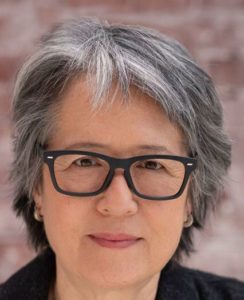
“We think of the writer as being the person who writes the book and the book as an object, solid and unchanging. But the book is a mutable object. I can write a book and you can read it, and in doing that, we’ve engaged in a process of cocreation. The book that you read is not the book that I wrote. You’re bringing your entire lived experience to it. That holds true for every reader in the world who reads this book, so if the book sells half a million copies, then that’s half a million different books out there in the world. They propagate. I can write something, but I have no idea and no control over how the book is read and what it becomes in the hands of another reader. And that’s exciting to me.”
— Ruth Ozeki
This quotation from Ruth Ozeki illustrates two important aspects of reading. First, the “process of cocreation” she refers to explains the interaction between a reader and a literary text that is the basis of reader-response criticism. In The Reader, the Text, the Poem: The Transactional Theory of the Literary Work (1978), Louise M. Rosenblatt calls this interaction “the reader’s contribution in the two-way, ‘transactional’ relationship with the text” (p. ix). In Rosenblatt’s terminology, the text is the written work and the poem is the meaning that the reader creates in interaction with the written words. Through this process of interacting with the text, the reader and the author work together to create meaning.
Second, this process of cocreation of meaning suggests what I find as the pleasure of rereading. This month I’ve been rereading some books I read 20 or 30 years ago. Because readers bring, as Ozeki says, their “entire lived experience” to a book, I am not now the same person I was when I first read those books. Although I enjoyed these books when I first read them, I think I’m finding a more personal sense of their meanings now that I’ve had the additional accumulated experiences of those 20 or 30 years.
© 2021 by Mary Daniels Brown


I first encountered reader response theory in grad school. As a fiction-writing student, I didn’t know what hit me!
I never encountered reader-response criticism in grad school. The program I was in didn’t teach theory at all, although all the faculty were firmly entrenched in New Criticism. One of the reasons I left before writing my dissertation was the feeling of elitism the faculty exuded, the belief that only we few chosen ones were capable of understanding and appreciating literature. I think a lot of people have an intuitive understanding of and response to literature, even if they haven’t had the benefit of all the education that would give them the vocabulary to talk about what they read. In fact, that belief is a big part of why I write this blog.
My undergraduate program was New Criticism all the way–which is why I had such a hard time with the post-modernist theorizing in grad school. The elitism was definitely there. Those of us in the writing program were pretty much viewed as the idiot savants of the English department. We could produce our meager scribblings, but they had no meaning unless a theory could be applied to them by the cognoscenti.
The direction I’ve seen much literary criticism take in recent years is as an excuse to discuss whatever sociological theory someone happens to be enamoured with. I firmly believe that literature should be taught as an experience–and any discussion should provide the reader with additional insights into the experience he or she had with the text.
I’ll stop now. My biases are showing!
That’s OK, since I share your particular biases!
Oh, well–that’s all right, then!